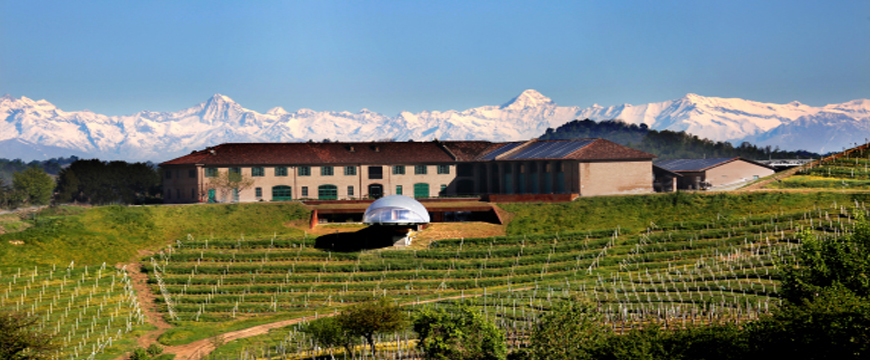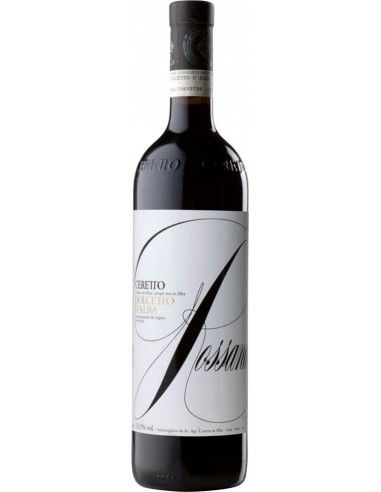-
All products
TypeWineriesItalyRest of the WorldGreat Wines
- Barolo and its Crus
- Bolgheri
- Bordeaux and the French Bordelais
- Brunello di Montalcino iconic
- Chianti ancient tradition
- Supertuscan the Italian Bordeaux blend
- Syrah Millenary Tradition
- Great International Red Wines
- Great International White Wines
- Amarone in all its elegance
- Pinot Noir from the World
- Timorasso a jewel to discover
-
PROMOTIONS
Promotions
-
Red Wines
Top 10 Italian Red WinesGreat Red Wines of the WorldTop French Red WinesRed Wines to Discover
-
White Wines
Top 10 Italian White WinesGreat White Wines of the WorldTop French White WinesWhite Wines to Discover
- Rosé Wines
-
Sparkling
ChampagneItalian Sparkling Wines
- High Langa
- Franciacorta
- Prosecco
- Sparkling wine
- Trentodoc
- Sparkling Wines Magnum size
- Organic Sparkling Wines
-
Special Wines
Flavoured WinesWines in Amphora
-
Distillates
Whisky by geographical originWhisky for raw materials
-
Exceptional Choices
Style & TrendGreat Wines
- Barolo and its Crus
- Bolgheri
- Bordeaux and the French Bordelais
- Brunello di Montalcino iconic
- Chianti ancient tradition
- Supertuscan the Italian Bordeaux blend
- Syrah Millenary Tradition
- Great International Red Wines
- Great International White Wines
- Amarone in all its elegance
- Pinot Noir from the World
- Timorasso a jewel to discover
- From the World
- Brands
- Blog
Dolcetto d'Alba DOC 'Rossana' by Ceretto is born in the eponymous cru located in the municipality of Alba, on calcareous-clay soils ideal for enhancing Dolcetto. The grapes, 100% Dolcetto, are cultivated using sustainable methods and harvested at perfect ripeness to preserve fruit, freshness, and varietal typicity. The winemaking takes place in stainless steel, followed by a short aging also in steel, in order to enhance the wine's fragrance without woody interference. On the nose, there are intense notes of blackberry, cherry, and bitter almond, while on the palate it is dry, soft, with gentle tannins and a smooth, refreshing drink. Perfect when paired with Piedmontese appetizers, tajarin with butter, white meats, and fresh cheeses. An authentic and everyday Dolcetto that elegantly tells the story of one of the emblematic grape varieties of the Langhe.
- Product Category
- Red Wine
- Denomination
- Dolcetto d'Alba DOC
- Philosophy
- Organic, Biodynamic
- Grape variety / Raw material
- dolcetto d'Alba
- Vintage or Cuvée
- 2023
- Format
- 750 ml.
- Nation
- Italy
- Region
- Piedmont
- Alcohol Content
- 13% vol.
- Service Temperature
- 16° – 18° C.
- Recommended Glass
- Very wide tulip glass
- Gastronomic Pairings
- First of the Earth, Mixed cold cuts, Red Meats
- Allergens
- Contains sulfites (sulfites refer to sulfur dioxide that is added to wine to preserve it, thanks to its disinfectant, antioxidant, and stabilizing action)
Ceretto

Nestled like a precious jewel among the soft hills of the Langhe, the Ceretto winery is a beacon of elegance and sustainability in the Piedmontese wine scene. Founded in a land where wine is culture and tradition, Ceretto stands out for its ability to intertwine art and viticulture, offering unique sensory experiences. Among the vines stretching under the sun of Piedmont, the company diligently cultivates iconic grapes such as Nebbiolo, Arneis, and Moscato, respecting nature and its life cycle.
With a production philosophy that embraces sustainable and innovative practices, Ceretto has made respect for the environment its mission. The vineyards, lovingly and carefully tended, are the beating heart of a production that knows no compromises in terms of quality. Among the standout labels, the Barolo Bricco Rocche stands as a symbol of refinement and identity, a wine capable of expressing with depth and character the soul of Nebbiolo and the unique terroir of the Langhe.
Each glass of Ceretto is a journey through aromas and flavors that tell stories of tradition and innovation, of art and nature. Discover on Vino45 the fascinating world of Ceretto wines, where every bottle is an invitation to explore the authentic beauty of Piedmont.
Address:
Strada Provinciale Alba/Barolo Località San Cassiano, 34 - 12051 Alba (CN), Italia
Color: bright and lively ruby red, with evident violet reflections that emphasize the youth of the vintage. The transparency and brightness are typical of the variety and of the wine not aged in wood.
Bouquet: intensely fruity and fragrant. Clear aromas of blackberry, black cherry, and fresh plum stand out, enriched by a subtle note of bitter almond and slight floral hints of violet. The olfactory ensemble is immediate, straightforward, and varietal, without any evolutionary or woody notes.
Taste: dry, medium-bodied, with a smooth entry and an agile structure. The tannins are fine and not aggressive, giving the sip balance and pleasantness. The acidity is well calibrated, providing freshness and a harmonious, slightly almond-like finish. The drinkability is smooth and satisfying, perfect for everyday consumption but not lacking in territorial identity.
Overall Rating: 88/100
Reviews
![]()
THE WINE
Dolcetto d'Alba DOC 'Rossana' by Ceretto is born in the homonymous cru located in the municipality of Alba, on calcareous-clay soils ideal for enhancing Dolcetto. The grapes, 100% Dolcetto, are cultivated using sustainable methods and harvested at perfect ripeness to preserve fruit, freshness, and varietal typicity. The vinification takes place in stainless steel, followed by a short aging also in steel, to enhance the wine's fragrance without woody interference. On the nose, there are intense notes of blackberry, cherry, and bitter almond, while on the palate it is dry, smooth, with gentle tannins and a lively, refreshing drinkability. Perfect when paired with Piedmontese appetizers, tajarin with butter, white meats, and fresh cheeses. An authentic and everyday Dolcetto that elegantly tells the story of one of the symbolic grape varieties of the Langhe.
THE PHILOSOPHY
Our vineyards are cultivated according to the model of organic farming, which avoids the excessive exploitation of natural resources, following a sustainable development model for both nature and man that can last over time.
The term Organic Farming refers to a cultivation method that allows the use of only natural substances, that is, those present in nature, excluding the use of synthetic chemical substances (fertilizers, herbicides, insecticides). All our vineyards (160 total hectares) have been converted to organic farming since 2010. A revolutionary choice that radically changes vineyard management methods, aimed at greater respect for the soil, the grapes, and humanity. In 2016 we obtained certification with the 2015 harvest, and the first organic wines were bottled.
THE COMPANY
Selecting the vineyards in historically the most valid positions was the goal of the two brothers Bruno and Marcello Ceretto. This idea, derived from a trip to Burgundy, would prove beneficial for the family and make the wines Barolo and Barbaresco among the most appreciated in the world. A revolution, at the time, for a territory where the concept of cru was completely unknown, but, above all, a brilliant intuition. A true struggle, theirs, undertaken with their father Riccardo, who bought the grapes to then vinify them. "You are starting a difficult journey; the land has never created wealth for anyone," Riccardo maintained, but the stubborn Bruno and Marcello had no doubts: "We are for the land one hundred percent; the winery certainly matters a little, but great wines are made with the grapes." They then began to dream of labels that would carry the name of the vineyard and also feature its photograph: "So whoever drinks that wine has the vineyard from which it comes under their eyes. The vineyard is history, the names of the hills remain over time, do not change, and this strengthens the quality and credibility of the wines produced here. A vineyard can be sought, visited, touched, always." In 1986, The Wine Spectator, perhaps the most influential American wine magazine, featured the two Langhe brothers on its cover, calling them Barolo Brothers. Bruno and Marcello are under 50, but they do not let themselves be overwhelmed by what is an official consecration, which everyone aspires to but few manage to achieve. Today they have remained true to themselves, have not stopped dreaming, and are fighting for a just goal. Meanwhile, the Langa has grown with them and with those who, like them, place the name of the land that made them born and accompanied them throughout their lives before their own name.










